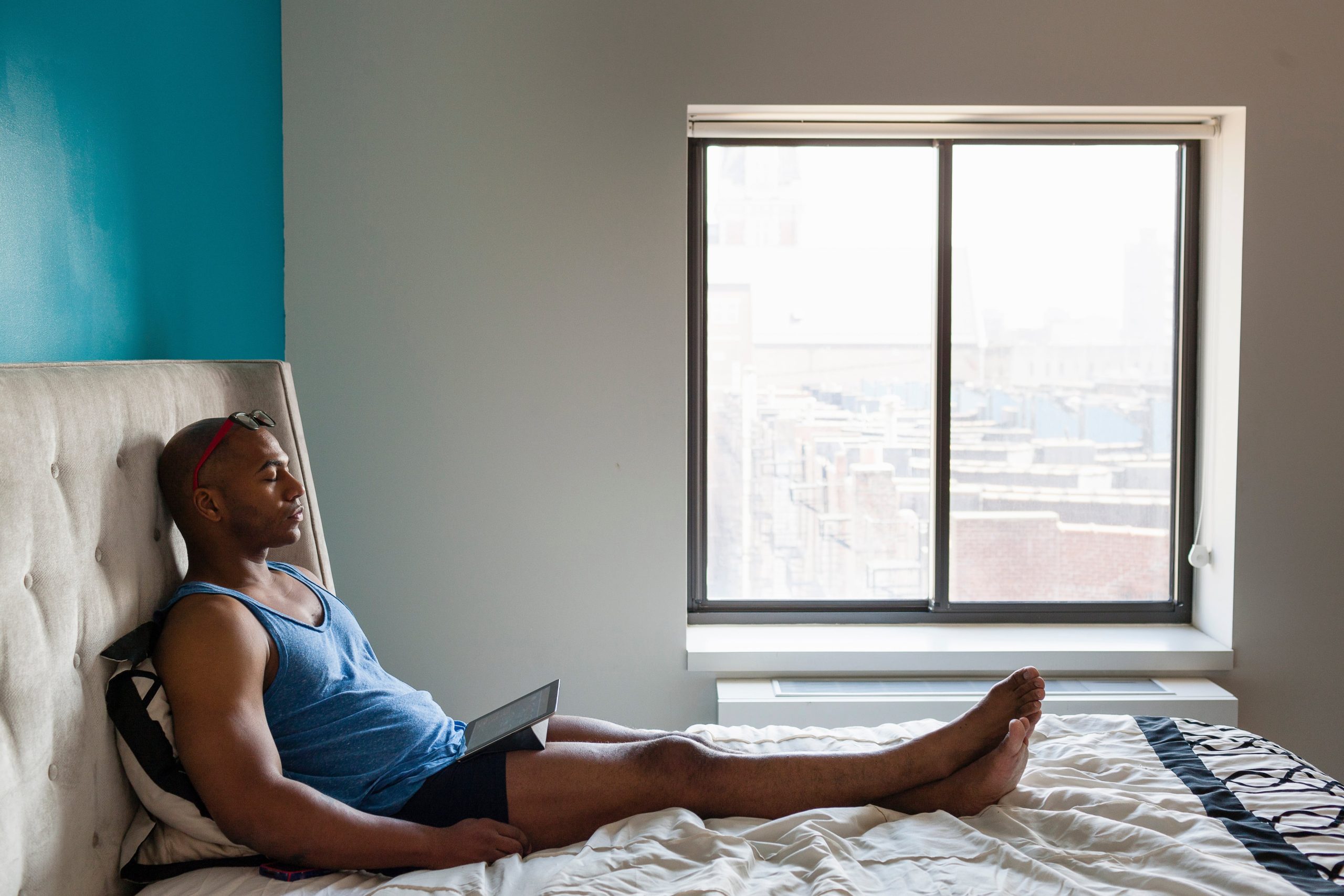Getting enough sleep is essential for achieving your fitness goals, yet many of us don’t prioritize it. Have you ever wondered why it is so important to get good quality sleep? From improved performance and concentration to a stronger immune system and reduced stress levels, the benefits of getting enough restful sleep can help you reach your goals faster. In this article, we will explore the effects of not getting enough sleep, as well as strategies for healthy sleep habits. Let’s dive in and see what happens when we don’t get enough shut-eye!
Effects of Not Getting Enough Sleep
Not getting enough sleep can have negative effects on performance, increase stress and appetite hormones, lead to overeating and weight gain, decrease motivation and concentration, and weaken the immune system. It is important for maintaining optimal health and wellbeing to get enough sleep.
Negative Impact On Performance
The lack of sufficient sleep can have a significant negative impact on physical performance. Studies have shown that even minor sleep deprivation can impair cognitive functions, affect reaction time and reduce alertness. This in turn affects the output during physical activity, leading to reduced strength and stamina. In addition, sleep deprivation decreases growth hormone production which is essential for building muscle mass and repairing tissue damage caused by exercise. Finally, not getting enough restful sleep can lead to increased levels of fatigue, making it harder to keep up with a regular fitness routine or reach your goals in the gym.
Increase in Stress Levels and Appetite Hormones
Sleep deprivation can also have a negative effect on mental health. Studies have shown that it can lead to increased levels of stress hormones and appetite hormones, which can make it more difficult to resist unhealthy cravings. This in turn leads to weight gain, decreased energy levels, and general feelings of unhappiness. Furthermore, an irregular sleep schedule interferes with the body’s natural circadian rhythm, which is important for maintaining optimal physical and mental well-being.
Loss of Motivation and Concentration
Sleep deprivation can have a profound effect on your ability to stay motivated and concentrate. When you are sleep deprived, it is difficult to focus or process information quickly. This can lead to fatigue, slower reaction time, and a decrease in physical performance during activities such as fitness workouts or sports. Additionally, insufficient sleep has been linked to a lack of motivation and decreased productivity in the workplace or school environment.
Weaker Immune System Responses
Getting adequate sleep is important for many aspects of your health, including your immune system. When you don’t get enough quality sleep, your body’s ability to fight off illnesses and infections is weakened. This is due to the fact that when you are in a state of restorative sleep, your body produces cytokines – proteins that help to fight infection and inflammation. Not getting enough hours of sleep can prevent these proteins from being released, meaning that you may be more susceptible to viruses and bacterial infections.
Strategies for Healthy Sleep Habits
Adopting healthy sleep habits is important for overall well-being. Regular bedtimes and wake-up times, exercise, avoiding stimulants, and creating a relaxing bedtime routine can all help promote healthy sleep habits. Reducing technology use and getting enough sunlight exposure can also regulate the body’s sleep-wake cycle. These strategies can improve the quality of sleep and leave one feeling refreshed and rejuvenated.
Schedule Regular Bedtimes and Wake-up Times
Making sure to stick to a regular bedtime and wake-up time is an essential part of creating healthy sleep habits. Going to bed and waking up at the same time every day helps your body establish a circadian rhythm, which is responsible for regulating the body’s natural sleep/wake cycle. Not only will this help you feel more alert during the day but it will also enhance your quality of sleep. Moreover, getting adequate rest each night has been linked to improved physical activity performance and better overall mental health.
Exercise Regularly During the Day
Regular exercise is essential for maintaining a healthy lifestyle, and it can also play an important role in helping you reach your fitness goals. Exercise helps increase energy levels and improves blood circulation throughout the body. Additionally, regular physical activity can help reduce stress levels and improve overall mood. When combined with a healthy diet and sufficient sleep each night, exercising regularly will help you achieve your desired fitness results. However, it is important to note that over-exercising can cause fatigue and make it difficult to fall asleep at night, so it is best to stick to a moderate exercise routine. Additionally, be sure to take breaks in between workouts as well as incorporate restorative activities such as yoga or stretching into your daily regimen.
Avoid Stimulants Late in the Day
Stimulants such as caffeine, energy drinks, and certain medications can be beneficial when consumed in moderation. However, they can also interfere with your ability to fall asleep if taken too late in the day. Consuming stimulants too close to bedtime can cause restlessness, making it harder for you to relax and enter a deep sleep state. To ensure that you are able to get adequate rest each night, it is best to avoid all stimulants for at least four hours before going to bed. Additionally, try to keep a consistent sleep schedule so that your body is better able to regulate its natural circadian rhythm and effectively prepare for sleep each night.
Create a Relaxing Bedtime Routine
Creating a consistent and relaxing bedtime routine can help you to get adequate rest each night. To create such a routine, it is important to start winding down at least one hour before your desired sleep time. During this time, engage in calming activities such as taking a warm bath or shower, reading a book, stretching or doing some light yoga poses, journaling, or listening to relaxation music. Additionally, make sure that the temperature in your bedroom is comfortable and limit screen time during this pre-sleep period. Of course, it is also essential to have a comfortable mattress and pillow that will provide you with the support needed for a good night’s sleep.
Reduce Technology Use Before Bedtime
Limiting technology use before bedtime is important for achieving optimal rest and helping you reach your fitness goals. The blue light emitted by many digital screens, such as phones and computers, can interfere with the body’s natural circadian rhythm, making it difficult to fall asleep or stay asleep throughout the night. Additionally, spending too much time on devices can lead to increased levels of stress which can also adversely affect sleep quality. Therefore, it is important to reduce technology use at least one hour before bedtime and instead focus on relaxing activities such as reading a book or taking a warm bath.
Get Enough Sunlight Exposure During the Day
It is important to get enough sunlight exposure during the day in order to boost energy levels and aid in achieving fitness goals. Sunlight exposure helps to regulate your body’s natural circadian rhythm, which regulates your sleep-wake cycle and affects when you feel alert and when you feel tired. Additionally, sunlight exposure helps boost the production of serotonin, a neurotransmitter that can improve mood and reduce stress levels, both of which are essential for staying motivated and focused while working out. Therefore, it is recommended that people get at least 15 minutes of direct sunlight each day by going outside or opening their blinds. This can help ensure that they are getting adequate light exposure during the day, helping them reach their fitness goals while also improving their overall mental health.

Conclusion
Sleep is an integral part of achieving fitness goals. Without adequate restorative sleep, the body cannot properly recover from physical activity, making it harder to reach those goals. Additionally, poor sleep has been linked to weight gain, poor reaction time, and slower growth hormone production. Therefore, it is important for people to prioritize getting enough sleep each night and creating a consistent sleep schedule in order to help them reach their fitness goals and maintain a healthy lifestyle. Getting seven to nine hours of sleep per night will help ensure that your body gets the rest it needs, helping you achieve your fitness ambitions while also improving overall health.











